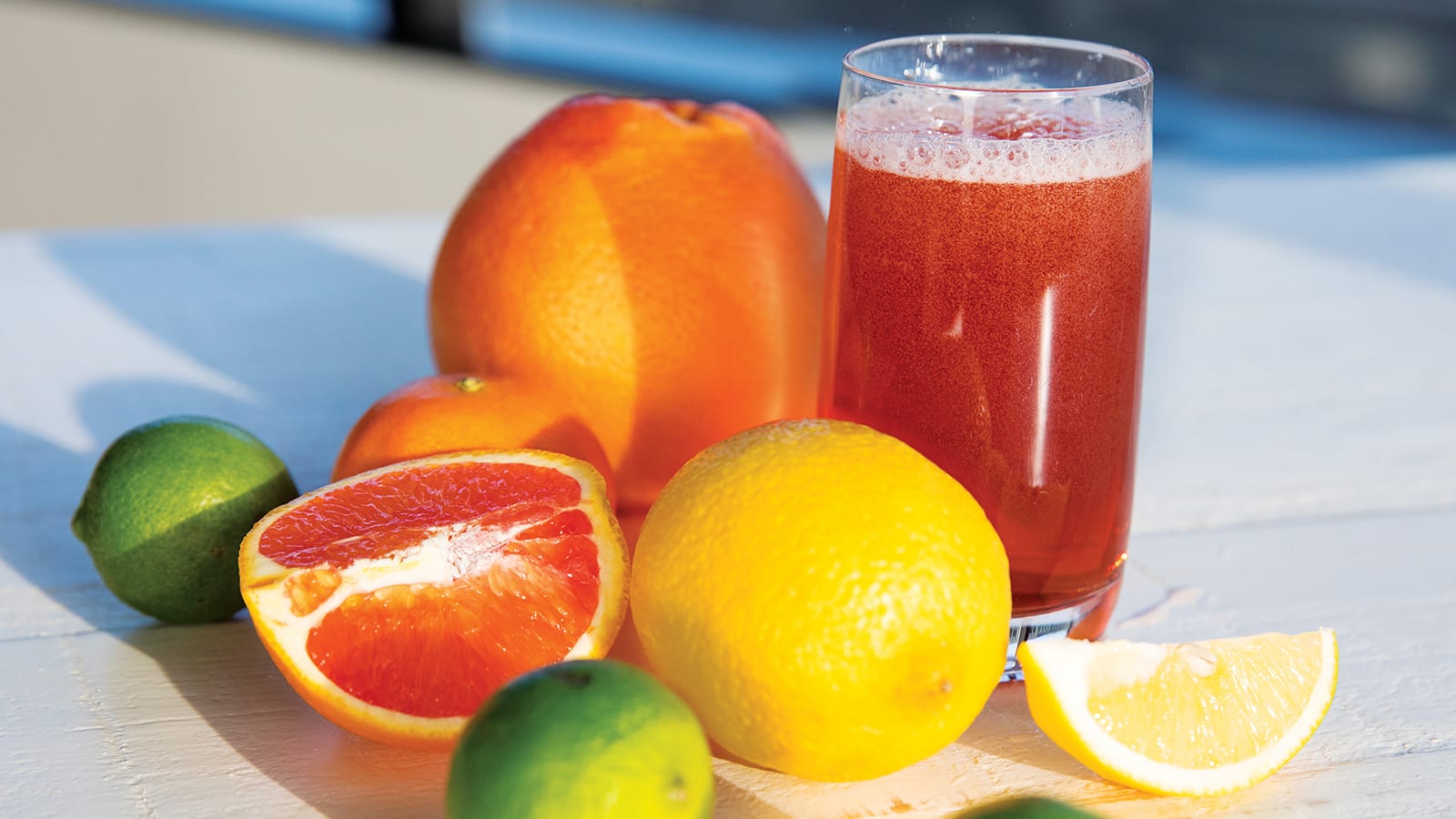Citrus and Cider
by Arianna Muirow, Ph.D.
This article was originally published in January 2018

When my father was a little boy, he and his brother would each receive an orange in their Christmas stocking. For them, an orange was a special treat to be savored slowly. This January we are offering an abundance of organic citrus options!
Citrus varieties
Look for our best sellers, the Heirloom Navel orange and the Texas Rio grapefruit. Or try some new and different varieties.
- The Cara Cara orange is sweet with a strawberry-like flavor.
- If you like tart tastes, the Minneola Tangelo might be for you. A cross between a tangerine and a grapefruit, this citrus has both the sweet orange flavor and the tang of the tangerine.
- Or try the Lemonade lemon – a cross between a lemon and an orange that is sweet enough to eat!
- The Shaddock pummelo is meaty with a complex, pleasant and subtle taste.
- Or try the Mango orange for a more delicate and sweet flavor with a hint of vanilla.
- I always love the dark red Blood oranges, with their tangy taste of raspberry and pomegranate.
So, enjoy exploring exciting new citrus flavors. Try them all – and savor them slowly.
Deer Creek Heights Ranch
Many of the rarer varieties that we offer come from Lisle Babbcock’s 370-acre organic farm, Deer Creek Heights Ranch, though his fruit is mostly known as Buck Brand Citrus because of the buck logo he uses. Babcock is known for nurturing and cultivating new varieties of oranges and other citrus. Citrus will naturally form new varieties on existing trees, and interested farmers will recognize these new varieties and cultivate them. For example, the Lou Lou orange came about exactly that way.
Several years ago, Babbcock found a new bud on a navel tree, and now he grows many of those trees. He has named the orange Lou Lou after his wife, Mary Lou, because they are, as he says, “smooth and sweet.”
Babbcock also takes care of his workers. He hires all his own workers, not contracting out to a third party, and he knows them well, hiring the same people season after season and even providing a company health plan for workers.
PCC Exclusive cider
We are also highlighting our exclusive cider this January, created through a special partnership with Schilling Cider. Schilling ciders are handcrafted in the Pacific Northwest using only 100 percent fresh-pressed apples, locally sourced and non-GMO ingredients, and individually hand-select yeast strains. Schilling’s alcoholic ciders are deliberately innovative, bold and full of flavor, making each cider experience truly unique.
For the last several years we’ve had the opportunity to get together with the cider makers at Schilling and dream up a new flavor – available only at PCC.
This year we’re excited to introduce our Raspberry Lemon Sour: it’s sweet and tangy and sour with an apple base – a delicious way to ring in the new year!
[ In Season ]
Sweeter than sunshine: Organic citrus!
Organic citrus is in season from Terra Bella and Deer Creek Ranch in California.
- Heirloom Navel orange
- Texas Rio grapefruit
- Cara Cara, Mango Valencia, Lou Lou, Navel and Blood oranges
- SuperNova, TDE, Daisy, Page, Clementine, Fremont, Murcott and Lee tangerines
- Minneola and Nova tangelos
- Mellow Gold and Cocktail Citrus grapefruit
- Meyer and Lemonade lemons
- Kishu mandarin
- Shaddock pummelo
